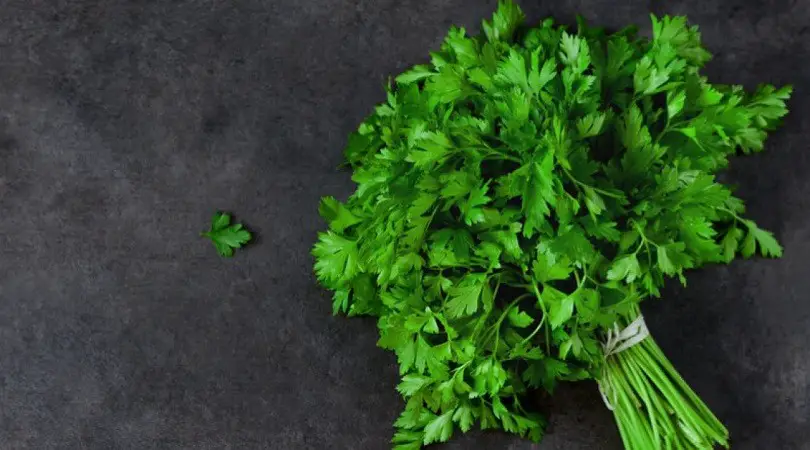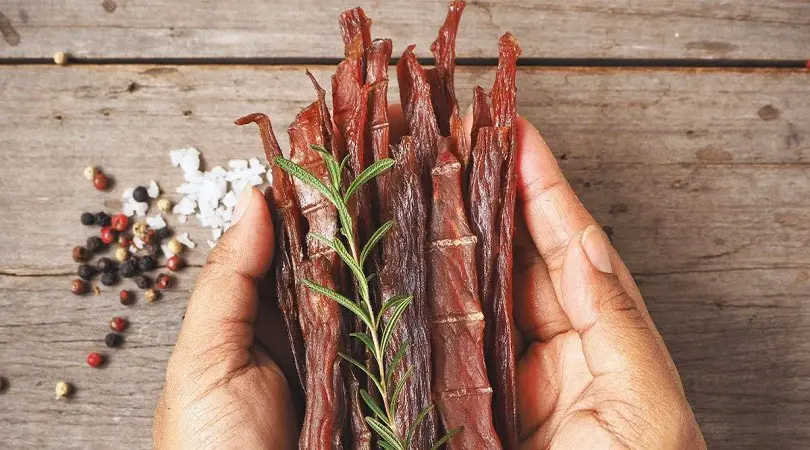Last Updated on January 6, 2025
Yes, it is safe to eat cilantro while pregnant. Cilantro is a nutritious herb that can be consumed during pregnancy without any known risks or adverse effects.
It is rich in vitamins, minerals, and antioxidants, and can provide various health benefits to both the mother and the baby. However, as with any food during pregnancy, it is important to ensure that the cilantro is thoroughly washed to remove any potential bacteria or contaminants.
Pregnant women should consult their healthcare provider for personalized advice regarding their diet and any specific concerns.

Credit: www.pregnancyfoodchecker.com
1. Nutritional Benefits Of Cilantro During Pregnancy
Cilantro – A Rich Source Of Essential Nutrients
Cilantro, also known as coriander leaves, is a herb that is widely used in many cuisines around the world. It not only adds a burst of flavor to dishes but also offers numerous nutritional benefits, making it an excellent choice for pregnant women.
When it comes to maintaining a healthy diet during pregnancy, cilantro is definitely a herb you should consider incorporating into your meals. Let’s take a closer look at why cilantro is a rich source of essential nutrients for you and your growing baby.
Vitamins And Minerals Found In Cilantro
- Vitamin k: Cilantro is packed with vitamin k, which is essential for promoting healthy blood clotting. This is particularly important during pregnancy when an increase in blood volume occurs to support both you and your baby.
- Vitamin c: Cilantro is also rich in vitamin c, which is known for its immune-boosting properties. A strong immune system is crucial during pregnancy to protect both you and your baby from infections and illnesses.
- Calcium: Calcium is essential for healthy bone development in your baby. Cilantro contains a decent amount of calcium, making it a great addition to your pregnancy diet.
- Iron: Iron is necessary for the production of hemoglobin, which helps carry oxygen to your cells and growing baby. Cilantro is a good source of iron, which can help prevent iron deficiency anemia during pregnancy.
- Folate: Cilantro contains folate, a b-vitamin that plays a crucial role in preventing neural tube defects in your baby. Adequate folate intake is crucial during the early stages of pregnancy to ensure proper development of the baby’s brain and spinal cord.
Importance Of Consuming Nutrient-Rich Foods During Pregnancy
During pregnancy, it becomes even more important to consume nutrient-rich foods to support your baby’s growth and development. Proper nutrition can help prevent complications during pregnancy, ensure a healthy birth weight for your baby, and promote your overall well-being. Incorporating cilantro into your meals can be a simple and delicious way to boost the nutritional value of your diet.
Remember, a well-balanced diet that includes a variety of fruits, vegetables, lean proteins, and whole grains is key to a healthy pregnancy.
By regularly consuming cilantro and other nutrient-rich foods, you can provide your body and growing baby with the essential vitamins, minerals, and antioxidants needed for optimal health. Don’t hesitate to get creative with your recipes and try adding cilantro to salads, soups, and even smoothies.
Your taste buds and your baby will thank you for the extra nutritional boost!
2. Considerations And Safety Precautions
Cilantro is a popular herb known for its vibrant flavor and versatility in various cuisines. But if you’re pregnant, you may have concerns about whether it’s safe to consume cilantro during this crucial time. We will delve into the considerations and safety precautions you should take when it comes to cilantro consumption during pregnancy.
Potential Risks Associated With Cilantro Consumption
- Contamination: Cilantro has been associated with outbreaks of foodborne illnesses due to contamination with bacteria like salmonella and e. coli. These can pose a risk to both you and your unborn baby.
- Allergies: Some individuals may be allergic to cilantro, and pregnancy can trigger new allergies or worsen existing ones. If you have a known allergy to cilantro, it’s best to avoid consuming it during pregnancy.
Pesticide And Contamination Concerns
- Pesticides: Conventionally grown cilantro can often contain pesticide residues. These chemicals may be harmful to the developing fetus. Opting for organic cilantro or thoroughly washing conventionally grown cilantro can help reduce pesticide exposure.
- Contamination: To avoid contamination, ensure that you source cilantro from reputable suppliers who follow proper hygiene practices.
Proper Cleaning And Preparation Of Cilantro
- Thorough washing: Rinse cilantro leaves and stems under running water to remove any dirt, debris, or pesticide residue.
- Soaking: Consider soaking cilantro in a mixture of water and vinegar for ten minutes to help remove potentially harmful contaminants.
- Drying: After washing, pat dry cilantro using a clean towel or use a salad spinner to remove excess moisture.
Moderation And Balance In Cilantro Consumption
- Moderation: As with any food during pregnancy, moderation is key. Consuming large quantities of cilantro may not be advisable. It is always best to consult with your healthcare provider regarding your specific dietary needs.
- Balance: It’s essential to maintain a well-balanced diet during pregnancy. While cilantro can be a flavorful addition to your meals, ensure you are also incorporating a variety of other nutritious foods into your daily meals.
While cilantro can be enjoyed during pregnancy, there are considerations and safety precautions that should be taken into account. By understanding the potential risks, ensuring proper cleaning and preparation, and consuming cilantro in moderation and balance, you can make informed choices about including cilantro in your diet while pregnant.
Remember, your healthcare provider is always the best source of personalized advice regarding your dietary needs during pregnancy.
Frequently Asked Questions For Can I Eat Cilantro While Pregnant?
Can I Eat Cilantro While Pregnant?
Yes, you can safely consume cilantro during pregnancy as it is a rich source of essential nutrients and antioxidants.
How Does Cilantro Benefit Pregnant Women?
Cilantro provides vital vitamins, minerals, and fiber, which support the health of both the mother and the developing baby.
Are There Any Risks Associated With Eating Cilantro During Pregnancy?
When consumed in moderation, cilantro poses no significant risks during pregnancy. However, excessive intake should be avoided.
Can Cilantro Cause Any Allergic Reactions During Pregnancy?
While rare, cilantro allergies can occur. If you experience any adverse reactions after consuming cilantro, consult your healthcare provider.
How Can I Include Cilantro In My Pregnancy Diet?
You can add cilantro to soups, salads, and dishes as a flavorful garnish or incorporate it into smoothies for an extra nutritional boost.
Conclusion
While cilantro is a flavorful herb that can enhance the taste of many dishes, it is important to exercise caution when consuming it during pregnancy. While cilantro is generally safe for most pregnant women when consumed in moderation, it is always advisable to consult with your healthcare provider before making any dietary changes during this sensitive period.
Although it may provide various health benefits such as rich in vitamins and antioxidants, some individuals may have an adverse reaction to cilantro due to its strong flavor or certain medical conditions. Additionally, it is essential to ensure that any cilantro you consume is properly washed and stored to minimize the risk of bacterial contamination.
By maintaining a balanced and varied diet and seeking guidance from your healthcare provider, you can enjoy cilantro safely during pregnancy and reap its potential benefits. Remember, your health and the health of your baby are the top priorities. Stay informed, make sensible choices, and enjoy a healthy pregnancy journey.











